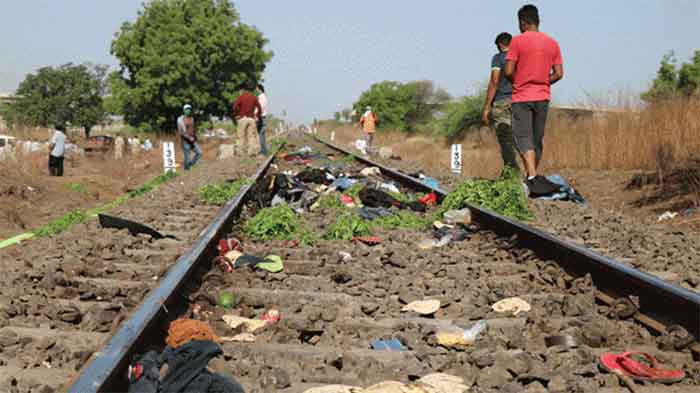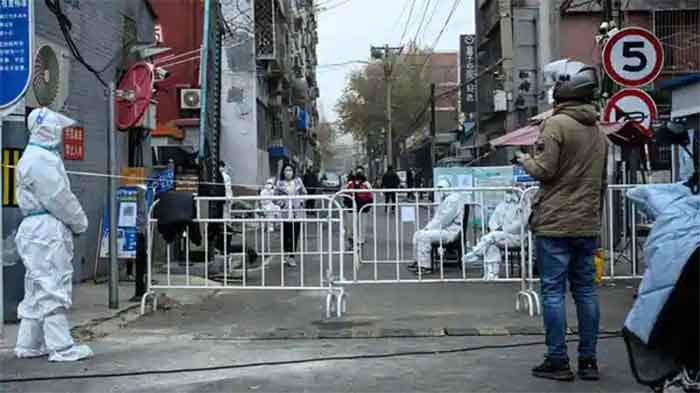
Introduction
Frank Snowden[i] defines Covid-19 as the first pandemic of globalization which exploits massive population growth, crowding and mega cities; an industrial model that encourages rapacious growth without counting the environmental cost. Spillover events are becoming more and more common. All these vulnerabilities are man-made. Humans provide the conditions for epidemic to flourish. In his view, “each epidemic is unique, and each one tells us something about the society in which it occurred”. Hence, pandemic pose ultimate questions about life and death. Though it places enormous strains on the economy where people are threatened by hunger and unemployment and simultaneously on social relationships which became more stressful; it also raises the question of peoples’ relationship with authority and the politics of public action.
Government’s disastrous response
In my view, the response to Corona outbreak which India and other South Asian countries has made the pandemic unique. Dev Pathak[ii] has rightly pointed out that the nation-states in South Asia are more interested in borders and boundaries than in the people who belong to the place. This pandemic has exposed the persistent structural fault-lines of Indian society which is deeply embedded into it; either it may be class, caste, religion or gender. Even the government’s response to the pandemic has been managed along with these fault-lines which is disastrous in a sense altogether. There are several examples which show the extent at which the government’s response exacerbates the crisis situation. For instance, Muslims are being dehumanized economically as well as socially at religious fault-line; Vande Bharat Mission vs Shramik train is another response at class-based faultline; dismantling of labour laws by several Indian states; negligence of reproductive health services during Covid-19 is another disastrous response at gender-based faultline and there are enormous examples. India’s pandemic response is also seen as caste atrocity inflicted violence on marginalized castes, and invisiblized in the name of containing a virus[iii].
Governing Hunger
Pandemic put enormous impact on individuals, families and societies as well in which they live. The people who are at lowest rung of the society were not even understood as humans with due sentiment and compassion. The recent survey revealed that hunger is pervasive among all communities. The situation of hunger is worst among migrants in comparison to non-migrants. The indignity heaped on poor people as evident in narration of standing in long queues, not getting food even after standing for long hours, getting infrequent and inadequate ration, and not getting it when they expected it, is the evidence of violence of fundamental rights of poor citizens in the time of a national calamity. Another finding of the study shows that the source of food to quell hunger was traced maximum to NGOs[iv]. The perpetual pangs of hunger spawned enormous death out of hunger and suicides due to job-loss. Demonstrating the history of changing meaning of hunger James Vernon[v] found hunger was discovered as a humanitarian issue and a social problem in later years. It was eventually recognized that hunger was not the fault of the hungry where they were victims of failing political and economic system over which they had no control. Consequently, the category of hunger becomes a critical locus for rethinking how statecraft emerge and work to redeem the hungry and vanquish hunger. It happened only when novel forms of news reporting connected people emotionally with the suffering of the hungry and refuted the conventional Malthusian model of causation. This study becomes very relevant in todays’ context where the incidence of conviction has been reported against those who are reporting hunger[vi]. So the current governing tendency seems to establish the old Malthusian view where hungry is supposed to be sole responsible for their hunger. Simultaneously, the statecraft is nevertheless behind in showing its humanitarian concern by announcing the extension of provision of free ration[vii]. For instance, on 30th June, 2020 on the eve of the start of “Unlock-2” PM announced to extend Pradhan Mantri Garib Kalyan Anna Yojna upto Diwali and Chhath Puja till November end. In his addressal, Modi said that the nation’s top priority is to ensure no one goes hungry. On the other hand, West Bengal government has announced for free food grains till June next year. The political element was quite apparent in this sort of announcements. It could be one of the strategic measures of the ruling government for skipping the political cost for the suffering it causes.
Conclusion
So, this would be going to new normal probably in the aftermath of corona crisis where political interest of statecraft is again prioritized above the humanitarian concern in the current pandemic situation to deal with this global crisis. A crisis can also be a stimulant for necessary reforms but nowhere did this pandemic lead to a rise in new authoritarianism. In the modern world, no one deserves to live with hunger. Therefore, the need of the hour is to rethink the rapacious growth model of industrial development where we may have to refigure our lives according to this new reality with humanitarian approach.
[i] https://www.hindustantimes.com/india-news/humans-provide-the-conditions-for-epidemics-to-flourish-frank-snowden/story-u9sTv3lMa3IuWj5gNsgwwN.html
[ii] https://www.deccanherald.com/opinion/in-perspective/plight-of-migrants-in-dehumanised-south-asia-849567.html?fbclid=IwAR1_zfkuqI3-Hpzo19OMj0z7TgD3KTkC0GC6PeirvBE3zOjJEGxGy697ns8
[iii] https://www.ndtv.com/opinion/india-s-pandemic-response-is-a-caste-atrocity-2236094?fbclid=IwAR2uPWuckFiwQdMW78LRQEqglNUnJb6JTi1YjZ3XyV7DMUuZmOd6HyJC8uA
[iv] http://centreforequitystudies.org/wp-content/uploads/2020/06/Labouring-Lives-_Final-Report.pdf
[v] Vernon, J. (2007). Hunger: A Modern History.
[vi] https://thewire.in/media/supriya-sharma-fir-abuse-law-press-freedom
[vii] https://indianexpress.com/article/india/pm-modi-coronavirus-lockdown-free-ration-scheme-6483474/
K Nidhi (Research Scholar), G.B.Pant Social Science Institute, Allahabad E-mail- [email protected]
SIGN UP FOR COUNTERCURRENTS DAILY NEWSLETTER















































